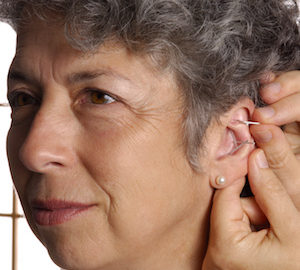It’s happening again. You’re having dinner with some friends, and you’re becoming increasingly uncomfortable. You haven’t had a bowel movement in almost a week. You’re tempted to excuse yourself once again and head to the restroom, but you already know it’ll be pointless. You can’t even focus on the conversation – all you can think about is seeking relief. Your friends have quieted down and are staring at you. You give up and smile, heading to the restaurant bathroom once again. Surely there are some remedies for constipation you could try?
What is Chronic Constipation?
The last time you experienced serious constipation was when you backpacked through Europe a few years ago. Nowadays, it seems you’re spending much more time sitting on the toilet than you used to. While it’s normal for everyone to experience constipation occasionally, especially when your body is going through some changes or stress, chronic constipation is an issue that can interfere with your ability to go about your everyday life.
The term “constipation” comes from the Latin constipare meaning “to press, crowd together.” Medically, constipation can be defined as experiencing infrequent bowel movements or difficult passage of stools over an extended period of time.
Symptoms of chronic constipation include:
- Having fewer than three bowel movements a week
- Straining to have bowel movements
- Having hard or lumpy stools
- Not being able to completely empty your rectum
- Emptying your rectum with help, such as pressing on your abdomen with your hands or manually removing stools with a finger
Causes of Chronic Constipation
Acupuncture for functional disorders has been shown to effectively help chronic constipation, but identifying the causes of constipation should be the first step. This will help your physician suggest remedies that address your specific needs. Knowing why you’re constipated is also important for ruling out more serious disorders that cause blockages in the colon or rectum. These blockages could be a sign of cancer, rectum and colon nerve problems, pelvic disorders or hormonal problems linked to fluid balance in the body, such as thyroid disease. Once any serious condition has been treated or ruled out, you and your physician can focus on finding a solution, which could involve a combination of lifestyle changes and incorporating several remedies for constipation.
Constipation may not seem like a big deal, especially if your case is mild; however, it’s important to address the issue and avoid further complications down the road. These complications can include:
- Fecal incontinence
- Hemorrhoids
- Anal fissure
- Pelvic organ prolapse
- Fecal impaction and bowel obstruction
- Bowel perforation and stercoral peritonitis
Remedies for Constipation
Since healthy bowel movements are linked to fiber intake, an important step in treating your condition is increasing your intake of vegetables, fruits and whole grains. Other remedies for constipation include:
- Exercising daily, which tones intestines and can help regulate bowel movements.
- Practicing yoga, breathing exercises, stress management and biofeedback, which involves training your pelvic muscles.
- Changing your habits and listening to your body by never ignoring the urge to have a bowel movement.
- Undergoing acupuncture for constipation.
- Drinking plenty of water during the day.
- Paying attention to your caffeine intake, as it can cause dehydration.
- Avoiding laxatives, which can provide quick relief but can lead to dangerous addictions.
- Adding fiber to your diet in the form of supplements if necessary.
- Taking probiotics daily, which may improve whole gut transit time, stool frequency and stool consistency.
Acupuncture Balanced Health
Chronic constipation can hinder your ability to perform everyday tasks and enjoy physical and social activities. Acupuncture Balanced Health offers top-notch integrative medicine plans developed by our team of experts – traditional Chinese medicine physicians who work with our board-certified physician trained in integrative medicine and acupuncture research. There’s no need to keep suffering from your condition, so contact us today to make an appointment. Our list of happy, healthy clients speaks for itself.




